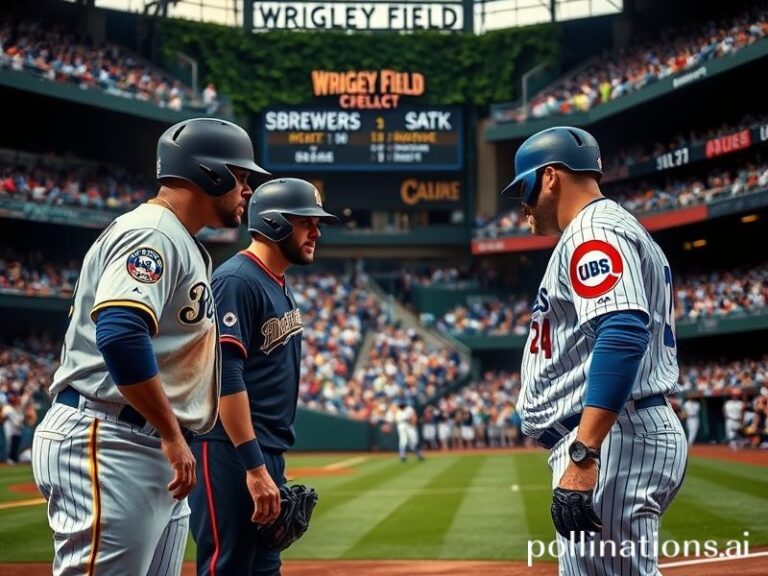Max Johnson: The Globetrotting Quarterback Who’s Everyone’s Temporary Hero
Max Johnson, the 22-year-old quarterback whose surname sounds like a budget airline and whose career arc resembles a particularly turbulent red-eye, has just been traded—again. This time from the sweltering humidity of Baton Rouge to the slightly less oppressive humidity of College Station, a lateral move that only the NCAA could classify as progress. For the uninitiated, Johnson is the son of a Super Bowl winner and the nephew of another, proof that athletic excellence is less about meritocracy and more about genetic nepotism with a side of Gatorade.
But let us zoom out, dear reader, because Johnson’s peripatetic journey is not merely about a young man with a cannon arm and a Rolodex of offensive coordinators. It is, in its own tragicomic way, a parable for our globalized age—an age where borders are porous for capital, viruses, and football talent, but decidedly less so for refugees or affordable housing. Johnson’s transfer portal saga is a microcosm of the modern labor market: hyper-mobility, short-term contracts, and the ever-present threat that an algorithm (or an angry booster) will render you obsolete by Tuesday.
Consider the implications. In Europe, where footballers are traded like Renaissance art with shin guards, the concept of “homegrown talent” has become quaint—like dial-up internet or bipartisan legislation. Johnson, meanwhile, is the American answer to this phenomenon: a player so transient that his Wikipedia page reads like a Fodor’s guide to the SEC. LSU, Florida State, now Texas A&M—each stop a new dialect to mangle, a new playbook to memorize, a new fan base to disappoint. One imagines Johnson someday starring in a documentary titled *Around the Conference in 80 Plays*, narrated by Werner Herzog in his signature tone of existential dread.
Globally, Johnson’s plight resonates with the gig economy’s foot soldiers. From the Deliveroo cyclist dodging Parisian traffic to the Amazon warehouse temp in Jakarta, the lesson is clear: adapt or perish. Johnson, to his credit, has adapted. He swapped purple and gold for garnet and gold, then maroon and white, proving that loyalty—like a defensive secondary—can be broken with a well-timed slant route. His NIL deals, rumored to rival the GDP of a small Pacific island, underscore another universal truth: in the attention economy, brand is destiny. Somewhere, a 12-year-old in Lagos is livestreaming Fortnite while wearing a knockoff Johnson jersey, unaware that the real Johnson is already scouting apartments in Norman for his next inevitable transfer.
And what of the geopolitical ramifications? Imagine, if you will, a future where college football conferences replace NATO as the primary alliance system. The SEC, bloated with oil money and defensive linemen, becomes the new Warsaw Pact. The Big Ten, with its cold-weather stoicism and agricultural subsidies, plays the role of the EU—bureaucratic, mildly self-righteous, and perennially second-best. Johnson, the mercenary quarterback, is both cause and symptom of this new order: a free agent in a world where sovereignty is negotiable and allegiance lasts only as long as the TV contract.
In the end, Max Johnson is less a person than a projection screen for our collective anxieties about impermanence, exploitation, and the absurdity of caring deeply about a game played by teenagers in front of drunk adults in body paint. He is the avatar of late capitalism, spiraling not just a football but also the very notion of stability. And yet, we watch. We always watch. Because if we didn’t, we’d have to confront the reality that we, too, are just temps in the grand scheme—waiting for the next notification, the next trade, the next existential punt.
So here’s to Max Johnson: may his arm stay strong, his Instagram followers plentiful, and his lease agreements month-to-month. In a world spinning faster than a perfectly thrown post route, he is the one constant we can count on to leave.







